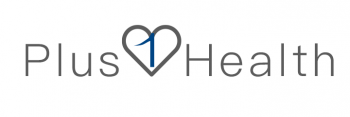In recent years, with the intensification of the aging trend of my country’s population, the prevalence of cardiovascular disease has also increased year by year. At present, the number of cardiovascular patients nationwide is about 290 million, and the number of myocardial infarction and heart failure is as high as 2.5 million and 4.5 million, respectively, which means that 1 in 5 adults suffers from cardiovascular disease. In addition, cardiovascular diseases are mostly chronic diseases or life-long diseases, with a long course of disease, high hospitalization rate and high hospitalization costs, resulting in an increasing burden on the family and even the society. It has become a medical and health problem that has attracted social attention. The sporadic and sudden onset characteristics of cardiovascular disease make it impossible for patients to be detected and treated in time; on the other hand, cardiovascular emergencies progress rapidly, with dangerous conditions and high mortality, posing a serious threat to human health and life. However, studies by Norris showed that 72% of patients had significant discomfort before the onset of cardiovascular emergencies (such as cardiac arrest). Plus1Health remote ECG monitoring has the functions of continuous monitoring of abnormal cardiac ECG signals for a long time, which can detect abnormalities in time and intervene to control the progress of the disease.
Remote ECG monitoring function:
1.Monitor
It can continuously monitor and record ECG data anytime, anywhere, 24 hours a day, automatically track and capture the clinically valuable dynamic data of patients according to the patient’s current basic ECG data and automatically store it, without the need for manual settings by doctors and patients, effectively reducing the workload of hospital doctors .
2.Early warning
Automatically adjust the heart rate, heart rate, ST segment analysis and warning thresholds according to the user’s heart condition, and automatically transmit the abnormal situation to the ECG monitoring center.
3.ECG analysis
It realizes ECG signal monitoring under various human motion states, and conducts multi-level and multi-angle analysis and judgment through client-side applet and remote data center analysis system.
Advantages of remote ECG monitoring:
Small in size, easy to carry, recording ECG information is not affected by factors such as time and location, high stability of data transmission, less time-consuming, and high coincidence rate in the diagnosis of arrhythmia, which is convenient for monitoring in families and communities. It can maintain real-time contact with medical staff and transmit ECG information in a timely manner. Medical staff can deal with abnormal ECG signals captured in a timely manner. The monitoring function is better than conventional ECG and 24-hour dynamic ECG, and it can reduce patients’ repeated visits to the hospital. Economic and psychological burden. Therefore, if remote ECG monitoring can be performed on patients with high-risk cardiovascular disease outside the hospital, the patient’s morbidity can be understood in real time, and timely treatment can be performed, which can significantly reduce the fatality rate of cardiovascular disease.
Remote ECG monitoring, just like having a heart housekeeper by your side, can truly control the occurrence of acute cardiovascular events from the source, and at the same time greatly reduce the mortality and disability rate of heart disease, and reduce the high cost of advanced treatment. Expenses and reduce the economic burden on society and families.
